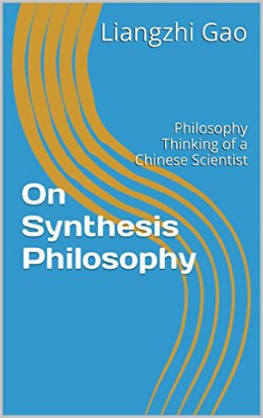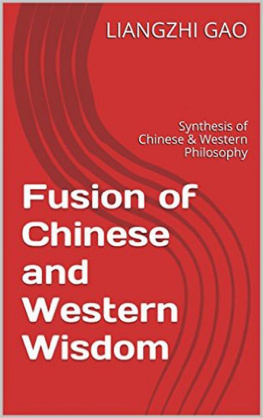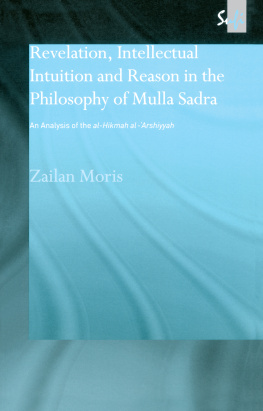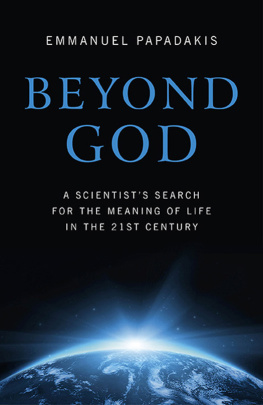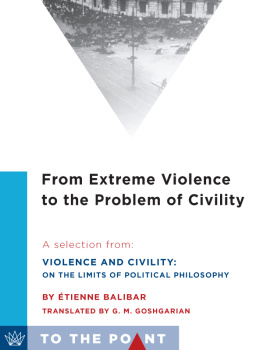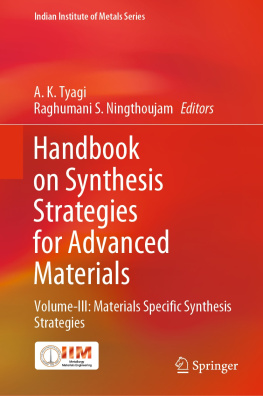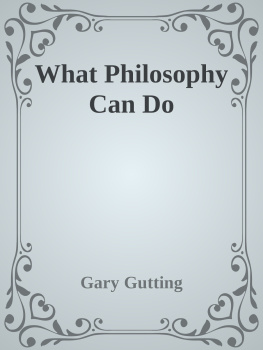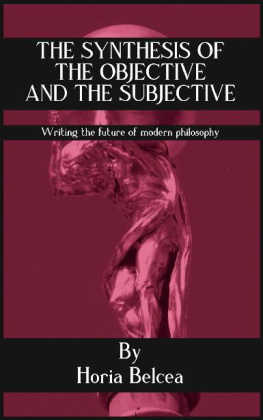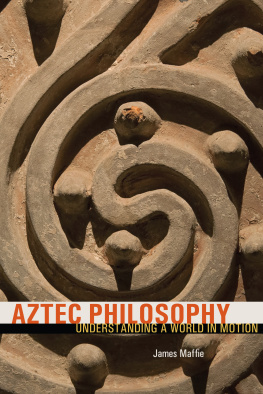Gao - On synthesis philosophy
Here you can read online Gao - On synthesis philosophy full text of the book (entire story) in english for free. Download pdf and epub, get meaning, cover and reviews about this ebook. genre: Science. Description of the work, (preface) as well as reviews are available. Best literature library LitArk.com created for fans of good reading and offers a wide selection of genres:
Romance novel
Science fiction
Adventure
Detective
Science
History
Home and family
Prose
Art
Politics
Computer
Non-fiction
Religion
Business
Children
Humor
Choose a favorite category and find really read worthwhile books. Enjoy immersion in the world of imagination, feel the emotions of the characters or learn something new for yourself, make an fascinating discovery.
On synthesis philosophy: summary, description and annotation
We offer to read an annotation, description, summary or preface (depends on what the author of the book "On synthesis philosophy" wrote himself). If you haven't found the necessary information about the book — write in the comments, we will try to find it.
Gao: author's other books
Who wrote On synthesis philosophy? Find out the surname, the name of the author of the book and a list of all author's works by series.
On synthesis philosophy — read online for free the complete book (whole text) full work
Below is the text of the book, divided by pages. System saving the place of the last page read, allows you to conveniently read the book "On synthesis philosophy" online for free, without having to search again every time where you left off. Put a bookmark, and you can go to the page where you finished reading at any time.
Font size:
Interval:
Bookmark:
---- Philosophy Thinking of a Chinese Scientist
Prof. LiangzhiGao
Brief introduction of Prof.Liangzhi Gao
Liangzhi Gao (1929--) orGao Liangzhi (in Chinese, Gao is his family name)
He was born in Shanghaiand graduated from the Affiliated High School of ShanghaiUniversity in 1946
In 1950 ,he graduated fromCollege of Agricultural Sciences of Zhejiang University.
He was working in EastChina College of Agriculture Sciences for four years . After then,he was working in East China Institute of Agricultural Sciences ,which turned to be Jiangsu Academy of Agricultural Sciences(JAAS)in 1978. From 1983-1990 ,he was assigned as the President of JAASand also a senior researcher there.
At the same period , hewas a professor of Nanjing Agricultural University, ChinaAgricultural University and Nanjing College of Meteorology . He wasa Trustee of CIMMYT( International Research Centre of Maize andWheat in Mexico)
He was one of the foundersof Agricultural Meteorology and the main founder of AgriculturalModeling Science in China.
He hasbeen accomplished 88 research papers and many books on AgriculturalSciences, as Climatic Ecology ofRice , Foundation of Agricultural System Science , Foundation ofAgricultural Modeling Science, etc.
He was interested inphilosophy in his young age . After he retired in 1999, up to now,he has read more than 300 books on philosophy, mostly originalworks of famous Chinese and Western philosophers. He wrote 8 bookson philosophy:
1) Essay onSynthesis Philosophy , Gao Liangzhi, ChinaCulture Press, 2007 (in Chinese)
2) Strolling onWestern Philosophy , Gao Liangzhi, WuhanUniversity Press, 2014(in Chinese)
3) A BriefDiscussion on Chinese Philosophy , GaoLiangzhi, Wuhan University Press, 2014(inChinese)
4) LovePhilosophy , Gao Liangzhi, ZhejiangUniversity Press,2011
5) GoodPhilosophy and Common Values, GaoLiangzhi, China Culture Press, 2014(in Chinese)
6) BeautyPhilosophy , Gao Liangzhi, Wuhan UniversityPress,2014
7) Does Man haveSoul? SoulPhilosophy and Scientific Rational Belief, Gao Liangzhi, Zhejiang University Press,2015(inChinese)
8) Synthesis of Chinese andWestern Philosophy,Gao Liangzhi , Zhejiang University Press,2015(inChinese)
His books on philosophyobtain high evaluation in the academic circle and by the readers inChina.
Synthesis Philosophy pushes Construction of HarmoniousSociety
Preface I
Li Rui
At the end of 2005, Ireceived the book Essay on SynthesisPhilosophy from my colleague, who was aschoolmate of the author. Reading this book made me have a muchwider view which enlightened me on many problems that I had beenthinking about.
Firstly , Iremin d that in 1990 ,I wrote a long article of 80 thousandwords Primary Discussion of Mao Zedongsleft leaning wrong thinking in his Late age , I had discussed Mao s theoretical thinking and philosophicviews including his works OnContradiction and On Practice. Besides the misleading of his theory of Class Struggle inhuman historical development, I analyzed his Struggle Philosophy.Movement andS truggle are the kernel thinking of his early philosophic thinking,which is his outlook of Cosmos and Life. In his total life, heliked to active and to struggle, especially to realize his maxim:Struggle with Man is a great pleasure . He regarded thatDifference is just Contradiction .There is no place in the worldwithout contradiction and opposition. Engaging in anything, youmust pass through struggle to overcome the contradiction. Hence hebuilt the Struggle Philosophy from theory to practice. As to theterm of Synthesis he regarded themeaning of it is If you could not destroy me , then I will destroyyou. Anything in the world has changes and struggles. Onlystruggle could solve problems. He made Struggle to be absolutizedand neglected and rejected any Identity . Then his ideaswere: Struggle will certainly bring success Struggle makes progress. If there is no struggle ,then itwill bring failure 0.8 billion people, how could therebe no struggle? Under the rule of his StrugglePhilosophy, China experienced political movement one by one andcame to the Cultural Revolution. In all our philosophic books ,wecould not find an important concept in Marxist philosophy: Unity ofDiversity. While I am writing this article, I deeply feel that toomuch and too terrible of the influence of ideology upon the society.How painful the lessons was that this bitter pill brought tocontemporary China.
I am not ascholar engaging in theoretical research, so on philosophy problem,Ill stop here .As to ancient and modern philosophy, the relationbetween ideological development and human historical development ,how to cognize history ,how to cognize the world ,how to cognizeMans essence and some basic problems in traditional philosophy, asthe opposition of Materialism and idealism, what is Dialects,including the relation between struggle and Identity etc. I havenot made deep researches. The author of this book takesSynthesisas his kernel philosophic theory which is a creative thinking anda challenge to traditional philosophy ,making me muchadmiring
After readingthis book, I got the connection with the author. He accepted myrequest presenting me ten copies of this book. On 2006 January 26 .I sent this book to six leading comrades working in the CentralCommittee of CPC and wrote a letter. The text is asfollows.
This book isworth reading. The author is a senior cadre, a natural scientist ,the former president of JAAS(Jiangsu Academy of AgriculturalSciences). He had great contribution to Agricultural Meteorology.He analysed philosophic problems mainly using knowledge of naturalsciences. He had read many (more than 100 references) ancient andmodern Chinese and Western philosophic famous works . He found thatall the success and failure of our party were related to thecorrectness and incorrectness of Marxist philosophy and ourrealization. Driven by historical sense of mission, he presented aseries of new opinions and formed a new theoretical system takingSynthesis as the kernel thinking . In this book ,he insisted onthe reasonable part of Marxism and rejected its incorrect orincomplete parts ( as All social history was history of ClassStruggle Struggle of opposites is absolute ,etc. )He regardedthat it is incorrect for us in the past time to reject allNon-Marxism philosophy. The creation and development of recentscience and recent thinking of Democracy, Liberty, Rule of Law ,Human Right, etc. including the thinking that our party isadvocating recently ,as govern for the people people orientation ,etc. all came fromphilosophers ( as Montesquieu, Rousseau ,etc.) in . EuropeanEnlightenment Movement in 18 century The thinking ofHarmonious society Harmonious worldrelate with Confuciuss saying : Harmony but not sameness . Theauthor regarded that we should synthesize Marxism philosophy ,Western philosophy and Chinese traditional philosophy together toform a philosophic thinking with Chinesecharacteristics.
Font size:
Interval:
Bookmark:
Similar books «On synthesis philosophy»
Look at similar books to On synthesis philosophy. We have selected literature similar in name and meaning in the hope of providing readers with more options to find new, interesting, not yet read works.
Discussion, reviews of the book On synthesis philosophy and just readers' own opinions. Leave your comments, write what you think about the work, its meaning or the main characters. Specify what exactly you liked and what you didn't like, and why you think so.

